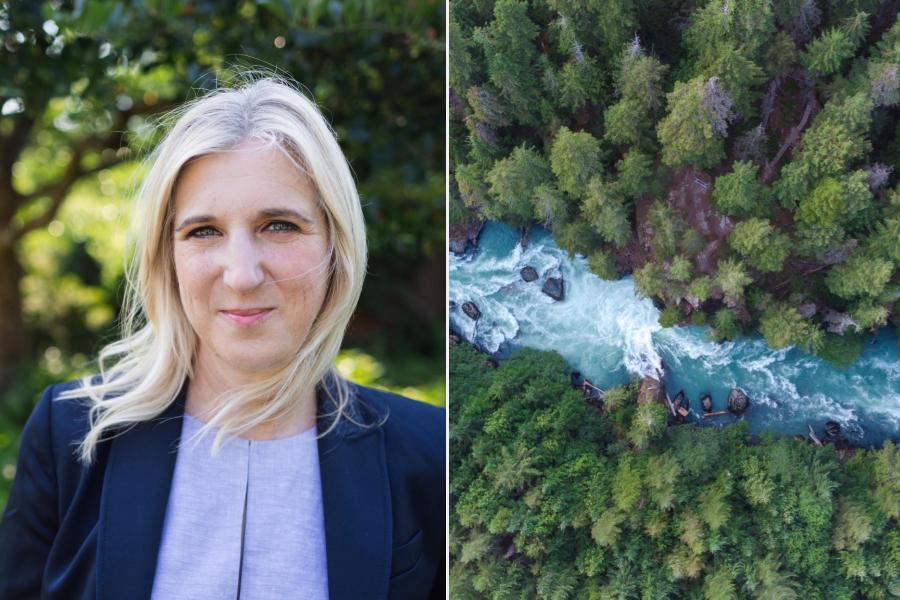
Much of the conversation around climate change solutions is focused on greenhouse gases, but adapting to the changing climate will require that and more. The Midwest Climate Adaptation Science Center, hosted at the University’s Institute on the Environment, is connecting the next generation of natural and cultural resource managers with scientists to empower future leaders to make critical decisions about our interactions with the natural world.
Jessica Hellmann, executive director of the Institute on the Environment and a professor in the College of Biological Sciences, discusses how the Center combines science and land management strategies to adapt to climate change.
Jessica Hellmann, Ph.D.
“Adaptation to climate change goes beyond reducing greenhouse gases. Its challenges are equally pressing but involve a different set of issues and a different mindset. Should we move species to help them adjust? How will park, ecosystem, grassland and forest management need to change? How do we conserve species affected by shifting temperature and precipitation extremes?”
“The scale is massive — we’ll need to adapt in every community and nation, in all habitats and ecosystems, and in every sector of society. It begs for deep thinking, creative technologies and innovations, and new incentives and financing. Across the University of Minnesota and specifically in the Midwest Climate Adaptation Science Center, we are pursuing cutting-edge adaptation science to preserve nature and protect people.”
“We are pursuing solutions, but we are also focused on developing future professionals through fellowships, research experiences and training. We need healthy ecosystems that deliver goods and services for our communities and industries, and we’re training the people who will make that healthy management possible now and into the future.”
Jessica Hellmann is the executive director and Ecolab Chair in Environmental Leadership of the University of Minnesota’s Institute on the Environment (IonE) and a professor in the College of Biological Sciences. As director of IonE, she provides strategic leadership for the Institute, a mission-based organization working to help build a future where people and the planet prosper together by pursuing interdisciplinary, solutions-focused research, developing sustainability leaders, and communicating in the public interest. Hellmann’s own research focuses on global change ecology, climate adaptation and the reduction of greenhouse gas emissions.
-30-
About the Institute on the Environment
The University of Minnesota Institute on the Environment supports research across disciplines, develops the next generation of global leaders and builds transformative partnerships — in service of solving our world's greatest challenges. IonE’s mission is to lead the way to a future in which people and planet prosper together. Learn more at environment.umn.edu.
About the Humphrey School of Public Affairs
The Humphrey School of Public Affairs at the University of Minnesota is ranked as one of the country’s top professional public policy and planning schools. The School is long noted for equipping students to play key roles in public life at the local, state, national and global levels and offers six distinctive master’s degrees, a doctoral degree, and six certificate programs. Learn more at hhh.umn.edu.
About The Midwest Climate Adaptation Science Center (MW CASC)
The Midwest Climate Adaptation Science Center (MW CASC) teams scientists with natural and cultural resource managers to deliver science to help fish, wildlife, water, land, and people adapt to a changing climate. Hosted by the University of Minnesota, the MW CASC is a consortium of research-focused academic, Tribal, and non-profit partners working collaboratively with the US Geological Survey. Learn more at mwcasc.umn.edu.
About “Expert Alert”
University of Minnesota experts can provide commentary, insights and opinions on various news topics. Find selected experts on the University’s Experts Guide or send requests to [email protected].





